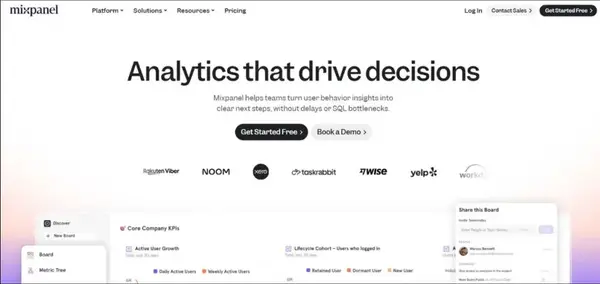Jaguar Land Rover Cyberattack: When Digital Disruption Brings Global Production to a Halt

Bottom Line Up Front: A sophisticated cyberattack on Jaguar Land Rover beginning September 1, 2025, forced the company to halt production at all global facilities, ordering thousands of factory workers to stay home while IT systems remained offline. The attack, claimed by the "Scattered Lapsus$ Hunters" group, has caused severe disruption to the automotive giant's operations with recovery expected to extend through September and potentially into October.
In an unprecedented disruption to one of Britain's most prestigious automotive manufacturers, Jaguar Land Rover (JLR) confirmed a cyberattack that has brought its global operations to a standstill. The incident, which began over the weekend of August 31-September 1, 2025, has forced the company to shut down production at all major facilities worldwide and instruct thousands of employees to remain at home while cybersecurity teams work to restore compromised systems.

The Attack Unfolds
The cyberattack struck at a particularly damaging time for JLR, coinciding with the launch of new UK vehicle registration plates on September 1—traditionally one of the busiest periods for new car registrations and deliveries. JLR has been impacted by a cyber incident. We took immediate action to mitigate its impact by proactively shutting down our systems. We are now working at pace to restart our global applications in a controlled manner, the company stated in its initial response.
The severity of the disruption became clear as reports emerged that no vehicles have been built since Sunday at any of the company's factories in Solihull, Halewood, Wolverhampton or Castle Bromwich, with production also suspended in Slovakia, China, India, and Brazil. The directive runs until at least Tuesday (9 September) and highlights the vulnerability of modern automotive supply chains to digital disruption.
Scope of Operations Affected
Global Production Shutdown
The attack has had far-reaching consequences across JLR's international manufacturing network:
- UK Facilities: All major UK production sites, including Solihull (Range Rover production), Halewood (Evoque and Discovery Sport), and Wolverhampton (engine manufacturing), have been completely shut down
- International Plants: Production has also been suspended in Slovakia, China, India and Brazil
- Workforce Impact: Thousands of staff have been told to stay home on full pay while 'banking' hours are to be recovered later
Supply Chain Paralysis
The attack's impact extended far beyond JLR's own facilities, creating a ripple effect throughout the automotive supply chain. Suppliers dependent on JLR's systems describe being locked out of "a giant database" blackout, leaving them unable to fulfil orders or dispatch critical parts.
Key suppliers affected include:
- Evtec
- WHS Plastics
- SurTec
- OPmobility
These suppliers, which collectively employ more than 6,000 people in the UK, have also been forced to pause their operations due to their inability to access JLR's ordering and logistics systems.
Retail and Customer Impact
The timing of the attack could not have been worse for JLR's retail operations. With vehicles unable to be registered, dealerships continue to face backlogs and customers remain on hold for deliveries of their new vehicles. Independent garages and aftermarket specialists are also struggling as they cannot access Land Rover's digital parts ordering platform, delaying repairs for existing customers.
Attribution: The "Scattered Lapsus$ Hunters"
A hacker syndicate linked to the Scattered Spider group that they are responsible for the hack on the car manufacturing giant has claimed responsibility for the attack. The group, which calls itself "Scattered Lapsus$ Hunters," suggesting a possible collaboration between Scattered Spider, ShinyHunters and Lapsus$, represents a formidable alliance of some of the most notorious English-speaking cybercriminal groups.
The Criminal Coalition
This hybrid group combines the capabilities of several well-known threat actors:
- Scattered Spider: Known for sophisticated social engineering attacks and responsible for the 2023 MGM Resorts and Caesars Entertainment breaches
- Lapsus$: The group that successfully breached Nvidia, Samsung, and Microsoft between 2021-2022
- ShinyHunters: Prolific attackers responsible for multiple AT&T Wireless breaches and recent Salesforce supply chain attacks
The newly rebranded "Scattered Spider, LAPSUS$, Shiny Hunters" hacker collective is allegedly behind the August 31st Jaguar Land Rover cyberattack. The group has been particularly active in 2025, with the gang is believed to be responsible for the recent spree of Salesforce attacks that, in the last week alone, have impacted such cybersecurity heavyweights as Palo Alto Networks, Cloudflare, and Zscaler.
Modus Operandi and Evidence
The BBC reported the claims following private text conversations with an individual purporting to be a spokesperson for the group, who shared screenshots reportedly taken from inside JLR's IT networks on the messaging app Telegram. According to the Financial Times, the hackers took to Telegram – through a user known as "Rey" – and posted screenshots that purportedly show internal JLR IT system data, including administrative logs and documents such as troubleshooting instructions relating to car charging systems.
The group has also made threatening statements about future attacks, posting on Telegram: "Just a matter of time till we lock Vodafone UK next and cut off peoples lines and internet, steal your call logs and leak your countries PMs and officials private conversations yayayay!!!"
Data Breach Confirmation
Initially, JLR maintained that there was no evidence of customer data theft. However, Jaguar Land Rover (JLR) has admitted that the recent cyberattack, which caused factory shutdowns, also resulted in data being compromised. In an updated statement, JLR confirmed today that attackers also stole "some data" during a recent cyberattack.
"As a result of our ongoing investigation, we now believe that some data has been affected and we are informing the relevant regulators," JLR said. The company has notified the UK Information Commissioner's Office about the potential data breach and stated it will "contact anyone as appropriate if we find that their data has been impacted".
Financial and Operational Impact
The financial implications of the attack are substantial. Analysts projected losses in the tens of millions of pounds per week due to production stoppages, lost sales, and recovery costs. JLR, which operates under Tata Motors India with an annual revenue of over $38 billion (£29 billion), JLR employs approximately 39,000 people and makes more than 400,000 vehicles each year.
Recovery Timeline
Disruption is expected to last through September and possibly into October, with The Sunday Times reported speculation that the outage could drag on for most of September. The extended recovery timeline reflects the complexity of safely restoring interconnected IT and operational technology systems without risking reinfection.
Industry Context and Vulnerability
This attack highlights the growing vulnerability of the automotive sector to cyber threats. The automotive sector relies on globalised supply chains and just-in-time processes makes it an attractive target for attacks designed to paralyse operations.
Previous JLR Incidents
This is not JLR's first encounter with cybercriminals in 2025. In March 2025, Hudson Rock reported that JLR had been victimized twice. The first time was by Hellcat who exploited JIRA credentials harvested by using an LG Electronics' employee's credentials that had been compromised by an infostealer.
Cybersecurity Investment Paradox
Ironically, In 2023, as part of an effort to "accelerate digital transformation across its business", JLR signed a five-year, £800m deal with corporate stablemate Tata Consultancy Services to provide cybersecurity and a range of other IT services. This substantial investment in cybersecurity infrastructure appears to have been insufficient to prevent the current crisis.
Response and Recovery Efforts
JLR's immediate response has been praised by cybersecurity experts as following best practices:
- Immediate Containment: JLR's decision to shut down systems was widely regarded as damage containment best practice. Security experts praised the move for potentially stopping the attacker from spreading further into JLR's IT-OT ecosystem
- Stakeholder Communication: The company quickly issued public statements and notified relevant authorities, including the UK National Crime Agency and Information Commissioner's Office
- Expert Engagement: JLR is working with cybersecurity specialists and law enforcement to ensure a controlled and secure recovery process
Broader Implications for the Automotive Industry
The JLR attack serves as a stark warning for the automotive industry about the evolving nature of cyber threats. Attacks increasingly focus on operational disruption – forcing production halts and supply chain breakdowns – rather than solely stealing data.
Key Vulnerabilities Exposed
The incident highlights several critical vulnerabilities in modern automotive manufacturing:
- Centralized IT Dependencies: Modern automotive firms rely heavily on centralized IT systems for global operations and logistics
- Supply Chain Interconnectedness: The just-in-time manufacturing model creates cascading failure points when core systems are compromised
- Digital Transformation Risks: Increasing digitalization creates more attack surfaces for cybercriminals to exploit
Industry-Wide Impact
The automotive sector relies on a global network of parts suppliers. This interconnectedness magnifies supply chain cyber risks, where one weak link can jeopardize the entire production process. The JLR incident demonstrates how a single point of failure can paralyze complete ecosystems across multiple countries and thousands of suppliers.
Expert Analysis and Recommendations
Cybersecurity experts have emphasized the broader implications of this attack. Jon Lucas, Director and Co-Founder of Hyve Managed Hosting, says: "The recent cyber attack on Jaguar Land Rover underlines how today's threats extend well beyond data theft as well as serves as a stark reminder that no organisation is immune to today's cyber threats, regardless of size or market influence.
"JLR's rapid reaction helped contain the damage, but the incident highlights how one IT outage at a critical hub can ripple across suppliers, logistics providers and retailers, bringing widespread disruption across the whole ecosystem", Lucas continued.
Key Lessons for Industry
The attack provides several critical lessons for organizations across all sectors:
- Cyber Resilience Over Digital Transformation: Companies must balance digitalization efforts with robust cybersecurity measures
- Supply Chain Security: Organizations must assess and strengthen the cybersecurity posture of their entire supply chain ecosystem
- Incident Response Planning: Having comprehensive business continuity plans that account for cyberattacks is essential
- Human Factor Training: Regular cybersecurity training can reduce the risk of social engineering attacks
Looking Forward
As JLR continues its recovery efforts, the incident serves as a sobering reminder of the evolving cyber threat landscape facing the automotive industry. JLR's situation reflects a wider industry trend where cyber resilience and rapid incident response are becoming mission-critical capabilities.
The attack on one of Britain's most prestigious automotive brands demonstrates that no organization, regardless of size, resources, or cybersecurity investment, is immune to sophisticated cyber threats. As the automotive industry continues its digital transformation journey, the JLR incident will likely serve as a case study in both the vulnerabilities inherent in interconnected manufacturing systems and the importance of robust cyber resilience strategies.
Key Statistics:
- Global Production Halt: All facilities in UK, Slovakia, China, India, and Brazil
- Workforce Impact: Thousands of employees sent home with full pay
- Supply Chain: 6,000+ supplier employees affected
- Recovery Timeline: Expected through September, possibly into October
- Company Scale: £29 billion annual revenue, 39,000 employees, 400,000+ vehicles annually
- Previous Investment: £800 million cybersecurity deal signed in 2023
This incident underscores the critical need for comprehensive cybersecurity strategies that protect not just data, but operational continuity in an increasingly interconnected industrial landscape.






